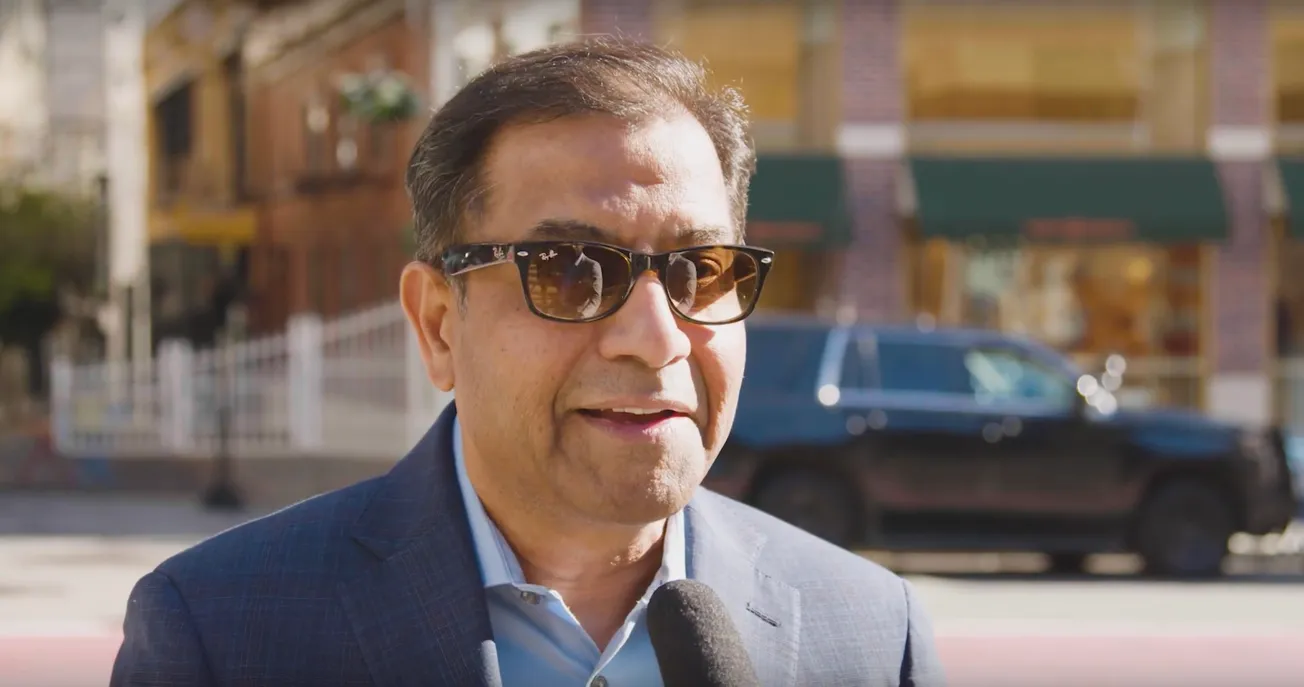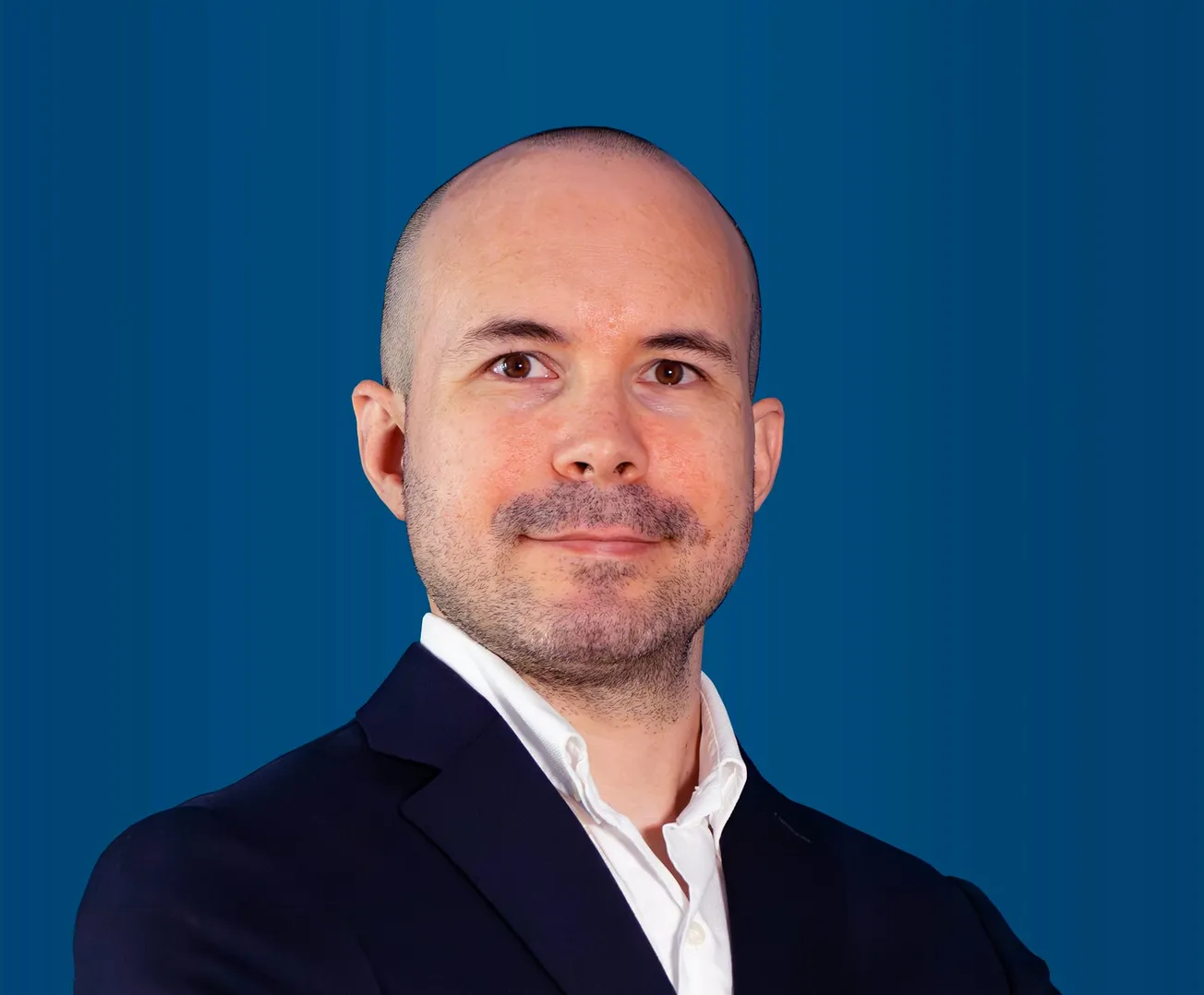Table of Contents
Richard Adcock, CEO of ImmunityBio, sat down with Onyx for a feature length interview.
Could you explain what Anktiva is and how it works?
Let's start with the current standard of care first. Patients with non-muscle invasive bladder cancer often receive BCG therapy, which involves instilling a live bacterium into the bladder to stimulate an immune response. While BCG can be effective initially, it doesn't always provide long-term durability, and some patients don't respond.
Our approach with Anktiva, which is a fusion protein, involves combining it with BCG to enhance the immune response. From a patient's perspective, the process of treatment for them is almost identical. The healthcare provider reconstitutes BCG and then mixes in Anktiva. It adds about 30 seconds to the procedure, so there's minimal disruption to the existing clinical workflow.
In April, the FDA approved Anktiva for BCG-unresponsive non-muscle invasive bladder cancer CIS- for us, that’s just the start. What Anktiva does to immune cells is remarkable. It activates natural killer cells, stimulates both CD8+ killer T cells and CD4+ helper T cells, and crucially, it induces memory T cells. This memory component is vital because it trains the immune system to recognize and attack cancer cells if they reappear, providing long-term durability.
We're hearing anecdotal evidence from nurses and physicians that patients are responding well. It's incredibly rewarding to see patients benefiting from this therapy.
Could you elaborate on the other areas you're focusing on?
While we're proud of our achievements in bladder cancer, our vision for ImmunityBio is extensive. We're actively working on therapies for lung cancer and colon cancer.
For instance, in lung cancer, we've been conducting trials combining Anktiva with checkpoint inhibitors like Keytruda. In patients who have failed previous therapies, we've seen a doubling in overall survival rates. It offers hope to patients who have limited options.
One of the most exciting projects we're involved in is a cancer-prevention trial for Lynch syndrome, a genetic condition that significantly increases the risk of colorectal and other cancers. The National Cancer Institute (NCI) and the National Institutes of Health (NIH) scoured the world for the best approach to prevent cancer in Lynch syndrome patients and concluded that our combination of Anktiva and our DNA vaccine vector were the most promising.
That trial is fully funded by the NCI and NIH and is being conducted at the Mayo Clinic, Johns Hopkins, Memorial Sloan Kettering, and MD Anderson. This is groundbreaking because it moves us into the realm of cancer prevention, not just treatment. If we can prevent cancer from developing in high-risk populations, that will be a monumental shift in healthcare.
We're also working on therapies for HIV. In collaboration with the Department of Defense, the Thai Red Cross, and the Henry Jackson Foundation, we are exploring the use of Anktiva combined with standard of care. Experts in the field have described our data as "the most exciting thing happening towards the cure for HIV." While current treatments manage HIV, our goal is to eradicate the virus.
What is your global strategy?
Following our first FDA approval for Anktiva, we immediately set our sights on global expansion. We're submitting applications to regulatory agencies in the UK and the European Medicines Agency for approval across Europe. Our goal is to expedite the approval process internationally so that patients around the world can benefit from our therapies.
We're conducting clinical trials in multiple countries, including Thailand, South Africa, India, the UK, Germany, Poland, and Hungary. Our bladder cancer trials are expanding to frontline settings and are now global too. We are a US-based company, but our ambitions are to treat cancer around the world.
We recognize that we can't cover the entire globe on our own, so we're open to strategic partnerships that align with our mission and values. However, we're cautious and want to ensure that any partnership we undertake allows us to maintain the integrity and quality of our work. We are stewards of exciting technologies with the potential to benefit patients. We are open to partnerships that accelerate and enable us to reach patients faster.
Let's talk about you for a moment. Give us a snapshot of your own career journey and the events that led you to the helm of ImmunityBio?
I often describe my career journey as unconventional. When I started, I joke that I couldn't spell "MD" if you gave me the initials. I didn't have a background in medicine, but I did have a knack for technology and problem-solving. I was good at listening to people, understanding their needs, and figuring out how to translate those into technological solutions.
In the early days, I was focused on improving analog, manual processes within healthcare. I was building electronic medical records before people even called them that. Ultimately, General Electric acquired the company I co-founded. That led to an amazing five years at GE, where I got exposure working with global companies.
I managed teams across Germany, the Netherlands, India, and multiple locations in the U.S. I was on the road a lot, and I did an MBA in healthcare management. Near the end of my MBA, I reached out to a local hospital in my neighborhood and connected with the president, Dr. Dan Blue. I interviewed him for some papers I was writing. Shortly after, I bumped into him while skiing with my family, and he said, "Hey, I want to hire you. We're going to build a new children's hospital."
I started as a director and eventually became the Chief Innovation Officer and Executive Vice President of a $6 billion health system, Sanford Health in South Dakota. Later, I moved to California to serve as CEO managing several hospitals across California.
Then Dr. Patrick Soon-Shiong reached out to me. Patrick is someone I had admired for a long time — a true visionary and one of the greatest minds in medicine and biotechnology. He asked me to join ImmunityBio. It was an opportunity I couldn't pass up.
Could you tell us more about Dr. Soon-Shiong and his work?
Absolutely. Patrick's story is integral to ImmunityBio — it's impossible to separate the two. He's South African by birth, trained as a surgeon and scientist in South Africa, Canada, and the United States. He was recruited by UCLA where he became a professor, transplant surgeon, and research scientist. But he didn’t stop there — he's someone who doesn't seem to need sleep! While juggling his roles at UCLA, he decided to become a NASA scientist. In the '90s, he worked on biomedical research that was sent up in the space shuttle.
This work led him to understand albumin binding, which ultimately became the foundation for Abraxane, which was a groundbreaking cancer drug. While he was developing Abraxane, he encountered some manufacturing challenges: the plant in Chicago that was producing a crucial component was about to shut down. So, Patrick flew to Japan, met with the owners, and convinced them to sell him the company based on his good name. Imagine that — a UCLA professor persuading a Japanese corporation to entrust him with their company to save his invention.
Abraxane became a blockbuster drug, eventually selling to Celgene and then to Bristol Myers Squibb. Patrick could have stopped there, but he took the proceeds—around $10 billion—and decided to focus on curing cancer in his lifetime. When he announced this goal publicly, many people scoffed, saying you can't use the word "cure." But Patrick was undeterred by skeptics. Wholly committed to the mission.
He was part of the Cancer Moonshot initiative by the NCI, aiming to bring biopharmaceutical companies together to collaborate on curing cancer. When he realized that getting big pharma to play nice in the sandbox could be challenging, he decided to leverage his resources differently. He began acquiring promising technologies, using his own funds to bring them together under one roof.
That's how ImmunityBio came to be — a convergence of cutting-edge technologies and platforms aimed at activating the immune system to fight cancer and infectious diseases. Patrick's vision is holistic; he believes in harnessing the body's natural defenses by engaging both the innate and adaptive immune systems.
Working with Patrick has been both a privilege and a learning experience. He's a visionary who leads by example.
Finally, as a company, how do you foster the culture at ImmunityBio?
We're in a field where the stakes are incredibly high — we're literally working to cure cancer and other devastating diseases. That reality fuels us. At ImmunityBio everyone is deeply mission driven. We have a culture where people are willing to go the extra mile because they understand the significance of what we're doing. It's not just a job; it's a calling. We celebrate the wins, but we're also resilient in the face of setbacks.
Leadership is about embodying the mission, fostering open communication, and empowering teams to solve complex problems. The team, they operate from a place of humility and passion. I think I'm blessed with truly the best team in all of pharma… we are doing something that's bigger than all of us!





